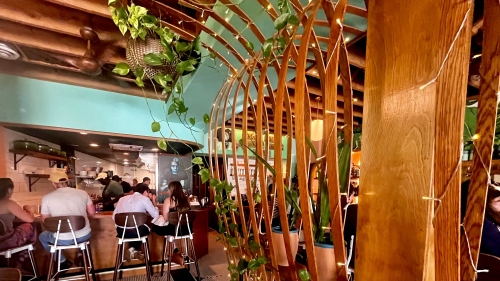Aldo Leopold wrote, “When we see land as a community to which we belong, we may begin to use it with love and respect.”
Those words are in his book, “A Sand County Almanac,” published in 1949. Considered the bible of land conservation, the book is celebrating its 75th anniversary this year and the Madison area is taking note with lectures, readings, and tours.
Who is Aldo Leopold?
A visionary conservationist. Considered by many to be the father of wildlife ecology and modern conservation, Leopold was a forester, philosopher, educator, writer, and outdoor enthusiast. He was born in Burlington, Iowa in 1887 and died in Baraboo, Wisconsin in 1948.
In 1933, he was appointed Professor of Game Management at UW-Madison, the first such professorship in the country. He also was named the first research director of the UW-Madison Arboretum. It was he who proposed turning the arboretum’s landscape back to “original Wisconsin,” taking out the farms and fields to return it to how it was pre-European settlement. Thus, tallgrass prairies were planted and oak savannas were grown.
What did he write?
An avid writer, inspired by the works of Henry David Thoreau, Leopold wrote a series of essays that were collected and published in “A Sand County Almanac.” It explores the natural world with a keen eye toward environmental preservation.
Why is it important?
Buddy Huffaker, executive director of the Aldo Leopold Foundation in Baraboo, recently stated, “I would argue that every conservation effort since has been tied to Aldo Leopold and his book, ‘A Sand County Almanac.’”
In it, Leopold discussed a “land ethic.” A moral code of conduct, it expands the definition of community to not only include humans, but all the other parts of the earth: animals, plants, water, and soil. The relationships between people and land are intertwined.
How can we celebrate?
Note: All events are free to participate in.
Friday, March 1-Saturday, March 9
Leopold Week, virtual
Leopold Week, put on by the Aldo Leopold Foundation, will explore how one can be more deeply connected to the land community with a series of eight virtual speaker sessions. Speakers include US Forest Service Chief Randy Moore, artist Max Sorenson, journalist Ed Yong, and more.
Saturday, March 2
Madison Reads Leopold: Voices of a Land Ethic, UW-Madison Arboretum, 1207 Seminole Hwy.
A community reading of “A Sand County Almanac,” and writings from other environmental thinkers, will take place from 1 to 4 p.m. at the Visitor Center. Light refreshments will be served served as essays by Leopold, Robin Wall Kimmerer, Joy Harjo, Mary Oliver, and others are read.
Sunday, March 3
Leopold Nature Walk, UW-Madison Arboretum, 1207 Seminole Hwy.
“In Leopold’s Footsteps,” taking place from 1 to 2:30 p.m., will allow attendees to visit key sites and learn about Leopold’s early phenological research and experiments to restore Wisconsin ecosystems.
Saturday, March 16
Maple Syrup Fest, Aldo Leopold Nature Center, 330 Femrite Dr.
This family friendly event, from 1 to 4 p.m., will offer a blend of indoor and outdoor activities include stations throughout the grounds that lead visitors through the history and science of maple syruping.
Saturday, March 23
Bird and Nature Adventure, Aldo Leopold Nature Center, 330 Femrite Dr.
Attendees will join a naturalist for an easy, family friendly walk, from 10 to 11:30 a.m., learning about the area’s flora and fauna.













